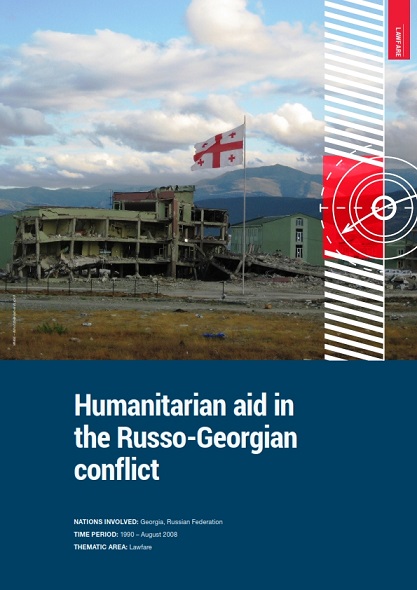EXECUTIVE SUMMARY. HUMANITARIAN AID IN THE RUSSO-GEORGIAN CONFLICT
EXECUTIVE SUMMARY. HUMANITARIAN AID IN THE RUSSO-GEORGIAN CONFLICT
Author(s): Author Not Specified
Subject(s): Human Rights and Humanitarian Law, Governance, International relations/trade, Geopolitics, Peace and Conflict Studies
Published by: NATO Strategic Communications Centre of Excellence
Keywords: Russian Federation; Georgia; separatist population; Russian government; humanitarian assistance; humanitarian aid;
Summary/Abstract: In 2008, the Russian Federation used ‘humanitarian’ assets in support of the separatist populations of Abkhazia and South Ossetia, two regions of Georgia, which both declared independence in the early 1990s. In this case study, the Russian government used what it termed ‘humanitarian assistance’ as an instrument to pursue broader policy goals that were not humanitarian in nature. Moscow relied on relief efforts and the language of humanitarianism to present itself as a neutral and impartial actor and to justify its continued support for the residents and de facto authorities of Abkhazia and South Ossetia, despite Georgian protests against its continued involvement. These humanitarian activities were utilised to strengthen the political and social ties between Russia and the Abkhaz and South Ossetian populations and to weaken their allegiance to the Georgian state. Russia’s ‘humanitarian’ activities demonstrated Georgia’s incapability to prevent Russian intervention in its domestic affairs and physical territory, as well as its inability to assert its authority over Abkhazia and South Ossetia.
- Page Count: 28
- Publication Year: 2019
- Language: English
- Content File-PDF

